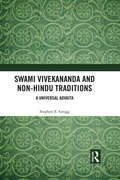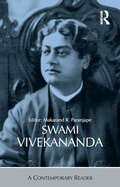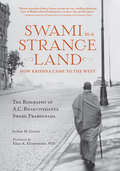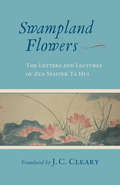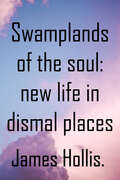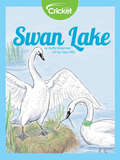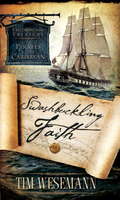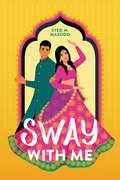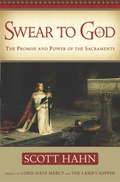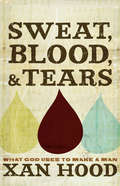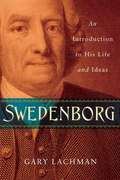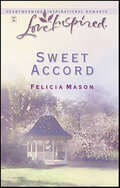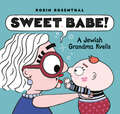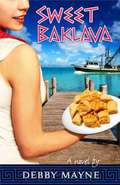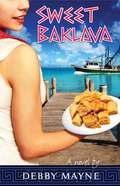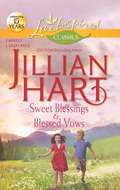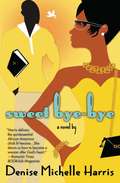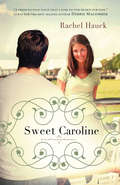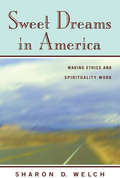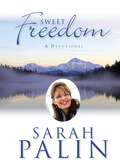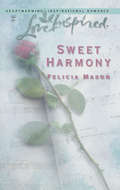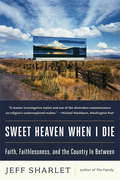- Table View
- List View
Swami Vivekananda and Non-Hindu Traditions: A Universal Advaita
by Stephen E. GreggThe Hindu thinker Swami Vivekananda (1863-1902) was and remains an important figure both within India, and in the West, where he was notable for preaching Vedanta. Scholarship surrounding Vivekananda is dominated by hagiography and his (mis)appropriation by the political Hindu Right. This work demonstrates that Vivekananda was no simplistic pluralist, as portrayed in hagiographical texts, nor narrow exclusivist, as portrayed by some modern Hindu nationalists, but a thoughtful, complex inclusivist. The book shows that Vivekananda formulated a hierarchical and inclusivistic framework of Hinduism, based upon his interpretations of a four-fold system of Yoga. It goes on to argue that Vivekananda understood his formulation of Vedanta to be universal, and applied it freely to non-Hindu traditions, and in so doing, demonstrates that Vivekananda was consistently critical of ‘low level’ spirituality, not only in non-Hindu traditions, but also within Hinduism. Demonstrating that Vivekananda is best understood within the context of ‘Advaitic primacy’, rather than ‘Hindu chauvinism’, this book will be of interest to scholars of Hinduism and South Asian religion and of South Asian diaspora communities and religious studies more generally.
Swami Vivekananda: A Contemporary Reader
by Makarand R. ParanjapeSwami Vivekananda (1863–1902) popularised Vedanta in the West and reformed Hinduism in India. He also inspired the mass movement that made India a modern nation. In showcasing his life and work, this Reader balances the two main aspects of his life: the religious and the secular, the spiritual and the practical, the devotional and the rational. Included here are the most significant and representative texts from every major genre and phase — selections from his speeches, essays, letters, poems, translations, conversations, and interviews — arranged for easy reading and reference. With a scholarly Introduction highlighting his contemporary relevance, separate section introductions and a detailed biographical Chronology, this volume provides a rare insight into one of India’s greatest minds. This volume will interest scholars and students of modern Indian history, religion, literature, and philosophy as well as general readers.
Swami Vivekanandar
by Nemai Sadhan Bose Ka. ChellappanSwami Vivekanandar is a Tamil translation by Ka.Chellappan of Nemai Sadhan Bose’s Monograph in English.
Swami in a Strange Land: How Krishna Came to the West
by Joshua M. Greene“Master storyteller Joshua Greene reveals the true, thrilling adventure story of Bhaktivedanta Prabhupada, a modern-day spiritual giant.” —Sharon Gannon, author and cofounder of Jivamukti YogaIn 1965, a seventy-year-old man—soon to be known as Prabhupada—set sail from India to America with a few books in his bag, pennies in his pockets, and a message of love in his heart. He landed in New York at the peak of the revolutionary counterculture movement of the ’60s, and went on to spark a global spiritual renaissance that led to the creation of the International Society for Krishna Consciousness (ISKCON), which has changed millions of lives. Through the depiction of Prabhupada as both an enlightened luminary and a personable, funny, and conscientious individual, Swami in a Strange Land shows why cultural icons such as George Harrison and Allen Ginsberg incorporated Prabhupada’s teachings into their lives, and why millions more around the globe embarked upon the path of bhakti yoga in his footsteps. Carefully researched, skillfully crafted, and extraordinarily intimate, this narrative follows Prabhupada as he rises from an anonymous monk to a world-renowned spiritual leader. Set in locations as far ranging as remote Himalayan caves and the gilded corridors of Paris’s City Hall, Swami in a Strange Land traces the rise of Eastern spirituality in the West—and in particular, the rise of yoga culture and vegetarianism and the concepts of karma and reincarnation. A remarkable journey into the deepest dimensions of the human experience, Swami in a Strange Land shows how one man with a dream can change the world.“[A] story of timeless love.” —Radhanath Swami, author of The Journey Home
Swampland Flowers: The Letters and Lectures of Zen Master Ta Hui
by J. C. ClearyThe writings of the twelfth-century Chinese Zen master Ta Hui are as immediately accessible as those of any contemporary teacher, and this book, which introduced them to the English-speaking world in the 1970s, has become a modern classic--a regular feature of recommended reading lists for Zen centers across America, even though the book has become difficult to find. We are happy to make the book available again after more than a decade of scarcity. J. C. Cleary's translation is as noteworthy for its elegant simplicity as for its accuracy. He has culled from the voluminous writings of Ta Hui Tsung Kao in the Chi Yeuh Lu this selection of letters, sermons, and lectures, some running no longer than a page, which cover a variety of subjects ranging from concern over the illness of a friend's son to the tending of an ox. Ta Hui addresses his remarks mainly to people in lay life and not to his fellow monks. Thus the emphasis throughout is on ways in which those immersed in worldly occupations can nevertheless learn Zen and achieve the liberation promised by the Buddha. These texts, available in English only in this translation, come as a revelation for their lucid thinking and startling wisdom. The translator's essay on Chan (Chinese Zen) Buddhism and his short biography of Ta Hui place the texts in their proper historical perspective.
Swamplands of the Soul: New Life in Dismal Places
by James HollisArguing that the pursuit of happiness is futile, the Jungian perspective asserts that the goal of life is not in happiness, but in meaning which is real, rather than a fruitless ideal. This book shows how to find life's dignity by uncovering its deepest meaning and discovering errors made.
Swamy Vivekanandara Jeevana Mattu Sandesha: ಸ್ವಾಮಿ ವಿವೇಕಾನಂದರ ಜೀವನ ಮತ್ತು ಸಂದೇಶ
by Swami Vivekananda Kendra Kannada Prakashana Mysoreಈ ಪುಸ್ತಕದಲ್ಲಿ ಸ್ವಾಮಿ ವಿವೇಕಾನಂದರ ಜೀವನ, ಅವರ ಉಪದೇಶಗಳು ಹಾಗೂ ಆಧ್ಯಾತ್ಮಿಕತೆ, ಶಿಕ್ಷಣ ಮತ್ತು ಸಮಾಜದ ಮೇಲಿನ ಅವರ ಅಪಾರ ಪರಿಣಾಮವನ್ನು ಸ್ಪಷ್ಟವಾಗಿ ವಿವರಿಸಲಾಗಿದೆ. ಅವರ ಆದರ್ಶಗಳು ಮತ್ತು ಚಿಂತನೆಗಳು ಇಂದಿನ ಪೀಳಿಗೆಗೆ ಪ್ರೇರಣೆಯ ಮೂಲವಾಗಿದ್ದು, ಈ ಕೃತಿಯು ಓದುಗರಿಗೆ ಆಧ್ಯಾತ್ಮಿಕ ಬೆಳವಣಿಗೆ ಮತ್ತು ಸಾಮಾಜಿಕ ಜಾಗೃತಿಗೆ ದಾರಿ ತೋರಿಸುವ ಉದ್ದೇಶವನ್ನು ಹೊಂದಿದೆ.
Swan Lake
by Randi SonenshineJake loves swans! He likes to learn about them and how they are different from other birds. With his mother, he takes a canoe ride so that he can see some swans up close! But what happens when he gets too close to their nest?
Swashbuckling Faith: Exploring for Treasure with Pirates of the Caribbean
by Tim WesemannPirates, Patches, and Parrots! What unexpected markers do you find along your faith journey, ones that lead you closer to God? InSwashbuckling Faith, author and former pastor Tim Wesemann helps you find surprising doorways to God's truth in the scenes and dialogue of thePirates of the Caribbeanmovie series. Created merely to entertain, these movies find Captain Jack Sparrow and his cohorts unintentionally leaving behind traces of truth ready to be explored and expanded in light of the Bible. Wesemann springboards from these glimpses to explore scriptural lessons on faith, prayer, contentment, spiritual warfare, forgiveness, hope, and much more. When your biblical perception starts finding treasures of truth in popular culture and everyday occurrences, you'll set sail for the adventure of a lifetime! "CaptainJack Sparrow, if you please, sir. " Captain Jack Sparrow (that's Johnny Depp, to you lovers of cinema) is the charming pirate in the popularPirates of the Caribbeanmovies that buried Hollywood in gold. The films captured imaginations young and old, but now Tim Wesemann invites you to depart on an even greater adventure-for real! Following the treasure map of God's Word, this dangerous exploration will reveal priceless gems of not-so-buried, no-so-pirate booty! You'll uncover hidden traces of truth and priceless pearls of faith. Lessons on prayer, contentment, spiritual warfare, forgiveness, and hope will awaken you to messages your true Captain is conveying all around you. Because even a pirate movie, looked at through new lenses, can point the way to tangible riches of biblical truth. "Funny and whimsical with just a touch of sheer insanity. " Dr. Timothy Paul Jones Pastor and author ofFinding God in a Galaxy Far, Far Away "Shiver me timbers! As a parent of teens and preteens, I can't wait to share these briny depths of faith and inspiration with my family!" Tricia Goyer Award-winning author ofLife Interrupted "A veritable treasure trove of wisdom and piratey-good fun that's not only entertaining to read, but draws you closer to God. " Mike Nappa Bestselling and award-winning author "Swashbuckling Faithis a fresh, funny, and surprisingly rich book that falls somewhere between a devotional and a pirate manual. " Dave Meurer Author ofIf You Want Breakfast in Bed, Sleep in the Kitchen "Full of life-changing, priceless gems from God's Word. You'll be 'hooked!'" Rhonda Rhea Radio personality, humor columnist, author ofWhoPut the Cat in the Fridge Story Behind the Book Tim Wesemann is not a pirate, nor does he act as one on TV. While "swashbuckler" may not appear on his resume, he loves exploring for biblical treasure and often discovers it where you might least expect it-including a secular movie with pirates who pillage, plunder, and pilfer. Even scenes and dialogue fromPirates of the Caribbeanserved to help grow his faith in God. While the movie is a favorite in the Wesemann household, Tim also draws from past experiences as a pastor and his present insights as a fulltime Christian author and speaker.
Sway with Me
by Syed M. MasoodShe&’s All That goes desi in this hilarious, affecting, and sweetly romantic comedy by the author of More Than Just a Pretty Face.Arsalan has learned everything he knows from Nana, his 100-year-old great-grandfather. This includes the fact that when Nana dies, Arsalan will be completely alone in the world, except for his estranged and abusive father. So he turns to Beenish, the step-daughter of a prominent matchmaker, to find him a future life partner. Beenish&’s request in return? That Arsalan help her ruin her older sister&’s wedding with a spectacular dance she&’s been forbidden to perform.Despite knowing as little about dancing as he does about girls, Arsalan wades into Beenish&’s chaotic world to discover friends and family he never expected. And though Arsalan&’s old-school manners and Beenish&’s take-no-prisoners attitude clash every minute, they find themselves getting closer and closer—literally. All that&’s left to realize is that the thing they both really want is each other, if only they can get in step.At turns laugh-out-loud funny, poignant, and sincerely heartfelt, Sway With Me is a coming-of-age story for anyone trying to find their place in the world.
Swear to God: The Promise and Power of the Sacraments
by Scott HahnThe most solemn, majestic, and beautiful gifts that Jesus Christ gave to the world are His sacraments. He endowed them with unprecedented and unparalleled power--power to change lives, save souls, and share God's very life. The sacraments are the ordinary means by which God directs the course of each human life and all of world history. The Church celebrates seven sacraments: baptism, Eucharist, confirmation, matrimony, holy orders, confession, and anointing of the sick. Each was established by Jesus for the sake of salvation. When Jesus spoke of the sacraments, He made clear that they were essential: Unless one is born of water and the Spirit, he cannot enter the kingdom of God (Jn 3:5) . . . unless you eat of the flesh of the Son of man and drink His blood, you have no life in you (Jn 6: 53). InSwear to God, Dr. Scott Hahn explores the richness of Christ's sacraments--their doctrine, history, symbols, and rituals. Drawing upon the Bible and the Church's tradition, he shows how God's covenants--with Adam, Noah, Abraham, Moses, and David--became the driving forces in history. When Jesus came to fulfill all these covenants, He established a new covenant, with greater power than ever before. Christians are God's children now. Joined to Christ by baptism, we can already share in the eternal life of the Trinity, a life we hope to know fully in heaven. But heaven is with us, even now, in the sacraments.
Sweat, Blood, and Tears
by Xan HoodBy the time he graduated college, Xan Hood appeared to have everything a young, privileged modern male needed for success and adulthood.But like so many others his age, he was afraid to take that next step. So he took a slight detour and headed west, surrounding himself wtih a class of men he had been raised to avoid. Follow Xan as he learns lessons that can only be taught by God's grace, hard work, and the presence of older men.Sweat, Blood, and Tears is a searingly honest coming-of-age story. It is a look at how God raises a man--a story for young men and those who love them.
Swedenborg: An Introduction to His Life and Ideas
by Gary LachmanA clear and concise overview of the life and work of the immensely influential but little understood eighteenth-century mystic-scientist Emanuel Swedenborg. “Lachman identifies all the roles Swedenborg inhabited (spiritual thinker, psychic, scientist, inventor, statesman, traveler, and possibly even spy) and does an exceptionally good job of suggesting why this little-known polymath deserves more substantial critical attention. ” – The Independent on Sunday (UK) It is difficult to imagine modern Western alternative spirituality without the influence of Swedish scientist and mystic Emanuel Swedenborg (1688-1772). Every movement in alternative spirituality – from mental-healing and Spiritualism to New Age mysticism and the twelve-step recovery movement – owes an immeasurable debt to the ideas he exploded upon the Western world. Yet Swedenborg’s work can be challenging for modern readers. His influence, everywhere at once, is difficult to get a handle on. Now, however, Gary Lachman provides an accessible, lively, and masterful introduction to the life and ideas of this spiritual giant. Lachman takes us to Swedenborg’s roots as brilliant rationalist and scientist who, well into mid-life, began to experience visions of other realms. From this point Swedenborg produced an extraordinary range of writings based on his out-of-body experiences, in which he related encounters with angels, other-planetary beings, and “the world of spirits. ”As Lachman explores, Swedenborg’s work opened up a radically liberal and refreshing ideal of religion. The great mystic saw humanity, and all of nature, as phenomena emerging from the “spiritual world,” and man as a vessel for divine influences. This vision inspired Western seekers to see man as a product of spiritual phenomena, and thus a being intimately connected with the cosmos. From this perspective grew bold new ideas about channeling, spiritual healing, mystical experience, mediumship – a litany of concepts that prefigured the revolutions in alternative and therapeutic spirituality. .
Sweet Accord
by Felicia MasonLight, melodic tones. That was a worship service. Not guitar music! At least, Haley Cartwright believed that, and she was willing to do anything to prevent the new choir director from changing things. No matter that the man stirred up more than just Haley’s anger and made her yearn for things she had long given up on.…Matt Brandon had come to the small Oregon town to start over. He’d never expected to face an adversary like Haley. And though she protested she wanted him out of town, he saw how much his music touched her. Could he use his music to work through her fears and show her the blessings of love?
Sweet Babe!: A Jewish Grandma Kvells
by Robin RosenthalAn exuberant and interactive picture book for grandparents and their genius, sweet, precious, SO-CUTE-I-CAN'T-STAND-IT! grandbabies, and a celebration of Yiddish and Jewish joy. For fans of Goodnight Bubbala and Leslie Patricelli.Look at this baby . . . what a genius! And such a shayne punim, too! From the top of baby's adorable head to the tips of their toes, there's nothing for a grandma not to adore in her little bubbeleh. Sweet Babe takes babies and their bubbies, not to mention grandparents of every stripe, on a delightful read-aloud journey that practically cries out for frequent cheek-squishing and keppie (head)-kissing in this irresistible celebration of the connection between grandparent and grandchild, and of Jewish joy through the generations.Includes a Yiddish glossary at the back with transliterated vocabulary.
Sweet Baklava
by Debby MayneAfter years of looking for a place to belong, Paula Andrews finally finds her niche in Tarpon Springs, Florida. Her soap and candle shop flourishes, and her friendship with the Papadopoulos family gives her the love and support she never got from her own family.The only thing missing is a romance-or in the grand hopes of the Papadopoulos family, a proper marriage. Preferably with Nick, their favorite son, currently serving in the Air Force. Paula, however, has doubts. After all, he's been gone a long time and loves flying. Their lives have grown apart. Would he still feel anything for her?When Nick comes home on leave, sparks fly, and not just with Paula. Nick's father wants him home, helping with the family sponge-diving business. His mother wants him back in the family, back in church. Nick just wants Paula . . . and the Air Force.So who's going to give in first? And what will it mean for their love and future?
Sweet Baklava
by Debby MayneAfter years of looking for a place to belong, Paula Andrews finally finds her niche in Tarpon Springs, Florida. Her soap and candle shop flourishes, and her friendship with the Papadopoulos family gives her the love and support she never got from her own family. The only thing missing is a romance-or in the grand hopes of the Papadopoulos family, a proper marriage. Preferably with Nick, their favorite son, currently serving in the Air Force. Paula, however, has doubts. After all, he's been gone a long time and loves flying. Their lives have grown apart. Would he still feel anything for her? When Nick comes home on leave, sparks fly, and not just with Paula. Nick's father wants him home, helping with the family sponge-diving business. His mother wants him back in the family, back in church. Nick just wants Paula . . . and the Air Force. So who's going to give in first? And what will it mean for their love and future?
Sweet Blessings and Blessed Vows
by Jillian HartSweet BlessingsOf course Amy McKaslin is drawn to the man who saved her and her son. But Heath Murdock needs more than gratitude from the sweet waitress. The grief-stricken drifter needs rescuing, too. Luckily Amy has enough love to save them both.Blessed VowsJake McCall wants a wife-now. Not for his sake, but to help care for his niece. So he sweeps Rachel McKaslin off her feet. Yet when the dust settles, will Jack be content with a marriage of convenience, or can Rachel help him reach for love?
Sweet Bye-Bye
by Denise Michelle HarrisChantell Meyers's father is on his deathbed. Desperate to somehow save him, hantell makes a promise to God that if He allows her father to live, she will become a better person. Now that her father has pulled through, she is determined to keep her word. But soon Chantell is faced with a series of trials, temptations, and revelations that test her faith. After she decides to stop having sex until she gets married, her boyfriend's response is devastating: he two-times her. Forced to break up with him, Chantell finds that the harder she tries to keep her promise to God and be a better person, the more complicated her life becomes. It is only by relinquishing her desire to "have it all" that Chantell is able to get everything she's ever wanted.
Sweet Caroline
by Rachel HauckCaroline serves others with little time to enjoy the sweeter parts of life. Until her old boyfriend returns to town--and she's given a second chance at first love. Life hasn't always been so sweet for Caroline Sweeny. She's sacrifice her desires for others--unlike her mother who abandoned their family years ago. But when a friend challenges her to accept an exciting job adventure in Spain, Caroline says "yes" to a new destiny. But before she can pack her bags, Caroline suddenly finds herself the new owner of the run-down Frogmore CafT--and forced to choose between her friends and her future. Then her first love, Mitch O'Neal, returns home and encourages her to seek God's desires for her future. With his help, she may just discover the true sweet life.
Sweet Dreams in America: Making Ethics and Spirituality Work
by Sharon D. WelchWhat does it mean to be an American during this time of ongoing challenges of race and sex discrimination, of violence and gross disparities in economic opportunity? And where are the activists who traditionally rallied against the ills of America--the democrats, progressives and leftists--to seize upon these enemies? In Sweet Dreams in America, Sharon Welch charts a way for people in power to inspire others and themselves, even if the goals of a gradually improving society and of achieving social justice seem illusory. The author links political work to spirituality, showing how we can channel the sense of being connected to forces outside ourselves to a larger good.
Sweet Dreams: A Novel
by Carla StewartIt's 1962, and Dusty Fairchild, daughter of a self-made millionaire and oilman, wants to go to college. Instead she is sent to a private finishing school in East Texas. Although she's never wanted for material possessions, Dusty longs for independence and adventure. The only upside to attending Miss Fontaine's is having her cousin and best childhood friend, Paisley, join her. Paisley has traveled the country with her bohemian mother, but she dreams of putting down roots and living a settled life. At Miss Fontaine's, their loyalty to each other binds them, but when they fall in love with the same handsome young man, their relationship teeters on shaky ground. Only after a tragic accident do they learn where their true hearts-and dreams-lie.
Sweet Freedom: A Devotional
by Sarah Palin"Peace I leave with you; my peace I give you. I do not give to you as the world gives. Do not let your hearts be troubled and do not be afraid. " -- John 14:27 In Sweet Freedom, Sarah Palin invites you to draw strength and inspiration from 260 meditations based on guiding Biblical verses. You are not alone in your doubts and anxieties--we all bear the burdens of everyday stresses, and for most of us, our concerns spread beyond our selves to our families, communities, and country. But Palin shows that with abiding faith, and by opening ourselves to the truths that have saved mankind for generations, we can thrive--and experience true freedom.
Sweet Harmony
by Felicia MasonR & B singer Marcus Ambrose needed a break from grueling work and travel, and participating in a small-town music and film festival in Oregon was the perfect excuse for a little rest and relaxation. But he never expected to fall head over heels for the town' s beautiful psychologist, who wasn' t at all impressed with his celebrity status.Dr. Kara Spencer seemed immune to Marcus' s attempts to woo her. Strong and independent, Kara wanted a man who believed in God, community and family, not flash and dash. How could he convince her that he used his music to inspire as well as entertain? That he couldn' t live another day without her by his side?
Sweet Heaven When I Die: Faith, Faithlessness, and the Country In Between
by Jeff Sharlet"A master investigative stylist and one of the shrewdest commentators on religion's underexplored realms."--Michael Washburn, Washington Post In this gorgeous collection of essays that has drawn comparisons to the work of Joan Didion, John McPhee, and Norman Mailer, best-selling author Jeff Sharlet reports back from the far reaches of belief, whether in the clear mountain air of "Sweet Fuck All, Colorado" or in a midnight congregation of anarchists celebrating a victory over police. Like movements in a complex piece of music, Sharlet's dispatches vibrate with all the madness and beauty, the melancholy and aspirations for transcendence, of American life.
